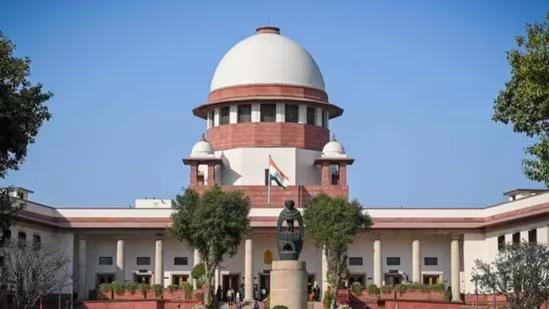
Court Can’t Grant Assent to Bills, Only Gov & Prez Can: Maha to SC
In a significant development, the Maharashtra government has argued in the Supreme Court that courts cannot accord assent to bills and only the Governor and President have the power to do so. This comment was made during the hearing of a presidential reference on whether the court could impose timelines for the Governor and President to deal with bills passed by state Assemblies.
Senior advocate Harish Salve, representing the Maharashtra government, made the comments during the hearing on Tuesday. The presidential reference was filed by the Centre, seeking the Supreme Court’s guidance on whether the court could impose timelines on the Governor and President to act on bills passed by state Assemblies.
The Maharashtra government’s argument is based on the Constitution, which grants the power to the Governor and President to accord assent or withhold assent to bills passed by state Assemblies. According to the Constitution, the Governor has the power to assent to bills passed by the state Assembly, while the President has the power to assent to bills passed by Parliament.
The Maharashtra government’s argument is that the court cannot usurp the powers of the Governor and President by imposing timelines on them to act on bills. Instead, the court should focus on ensuring that the Governor and President exercise their powers in accordance with the Constitution and the law.
The Centre had filed the presidential reference after the Madras High Court had imposed a timeline on the Tamil Nadu Governor to take a decision on a bill passed by the state Assembly. The Centre had argued that the court’s action was unconstitutional and that the court had overstepped its boundaries by imposing a timeline on the Governor.
The Maharashtra government’s argument is that the court’s power is limited to judicial review and that it cannot exercise executive powers. According to the government, the court’s role is to ensure that the Governor and President exercise their powers in accordance with the Constitution and the law, but it cannot substitute its own judgment for that of the Governor and President.
The Maharashtra government’s argument is supported by the Constitution, which grants the power to the Governor and President to accord assent or withhold assent to bills passed by state Assemblies. The Constitution also grants the court the power to judicially review the actions of the Governor and President, but it does not grant the court the power to impose timelines on them.
The Centre’s argument, on the other hand, is that the court’s power to judicially review the actions of the Governor and President includes the power to impose timelines on them. According to the Centre, the court’s power is not limited to reviewing the legality of the Governor and President’s actions, but also includes the power to review the wisdom of their actions.
The Centre’s argument is based on the principle of the rule of law, which requires the court to ensure that the Governor and President exercise their powers in accordance with the Constitution and the law. According to the Centre, the court’s power to impose timelines on the Governor and President is necessary to ensure that they do not abuse their powers.
The court’s decision on the presidential reference is expected to have significant implications for the functioning of the Governor and President. If the court rules in favour of the Centre, it could lead to the court imposing timelines on the Governor and President to act on bills passed by state Assemblies. On the other hand, if the court rules in favour of the Maharashtra government, it could lead to the court’s role being limited to judicial review and not exercising executive powers.
Regardless of the court’s decision, the presidential reference has highlighted the importance of the relationship between the court and the executive in a democratic society. The court’s role is to ensure that the executive exercises its powers in accordance with the Constitution and the law, but it is also important for the executive to respect the court’s decision and to ensure that it does not abuse its powers.
Source:






